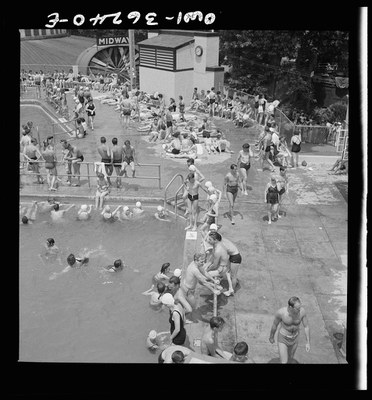
In recent years there has been a tremendous nostalgia for urban recreation of the early and mid-twentieth century. Old wooden roller coasters, lavish swimming pools, and swinging dance halls have been celebrated in documentary films and other forms of public history. Rarely, however, do these public depictions of the past highlight the racial exclusion on which recreation was premised. That exclusion was primarily enforced by white violence: on urban beachfronts, playgrounds, and commercial facilities like roller skating rinks and amusement parks. The incongruity of such violence coupled with images of families at play has hidden this history of racial struggle in recreational spaces, North and South. This talk will explore the history of recreational segregation and its legacy for modern America.
Victoria W. Wolcott is professor of history at the University at Buffalo, SUNY. Her first book, published in 2001, was Remaking Respectability: African-American Women in Interwar Detroit. In 2012, Wolcott published a second book, Race, Riots, and Roller Coasters: The Struggle Over Segregated Recreation in America. In addition, she has published articles in The Journal of American History, The Radical History Review, and the Journal of Women’s History, among others. Her current book project is Living in the Future: The Utopian Strain in the Long Civil Rights Movement, which explores the role of interracial pacifist communities in the civil rights movement.